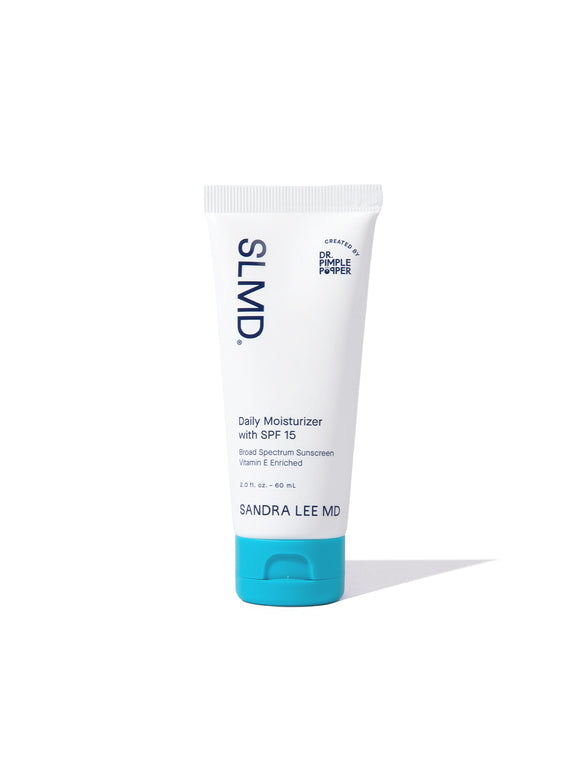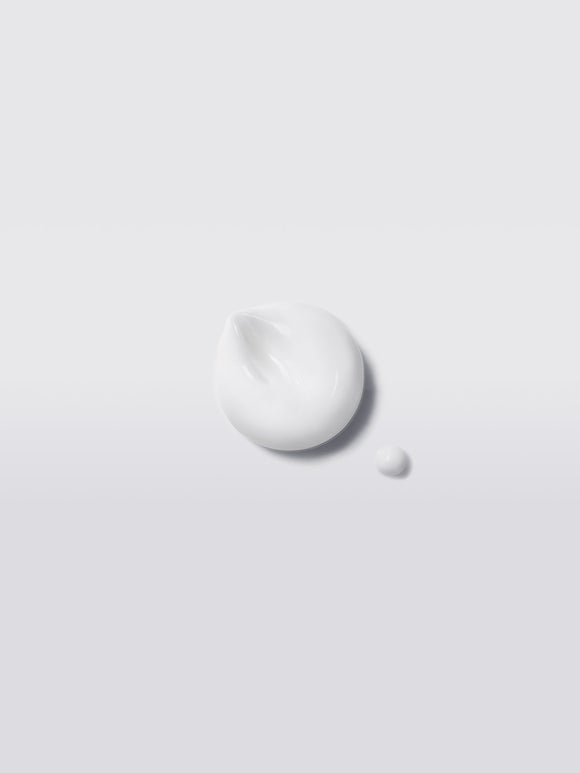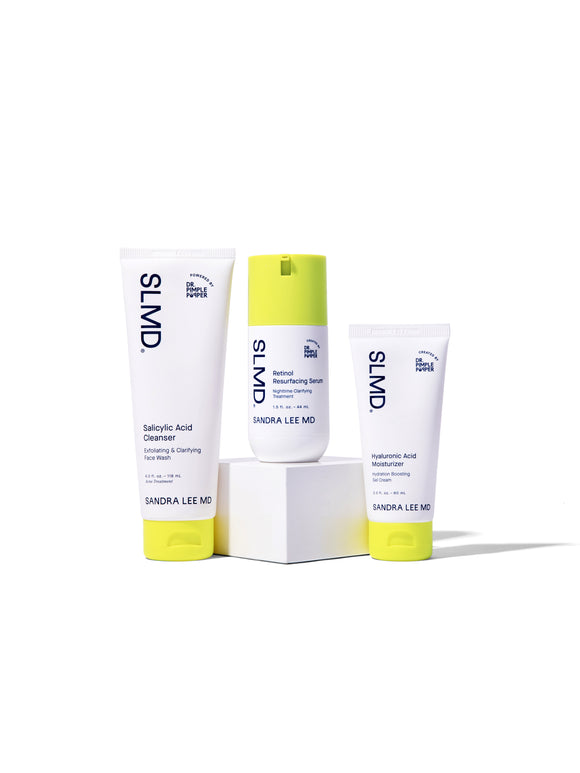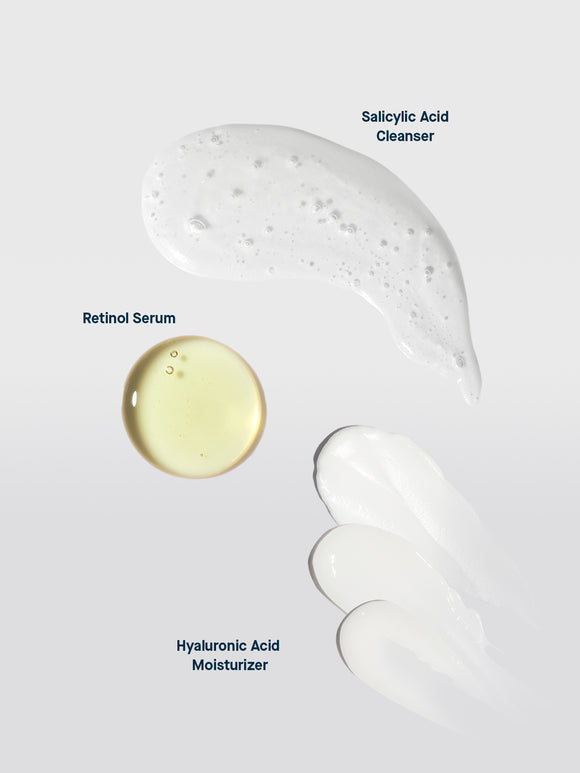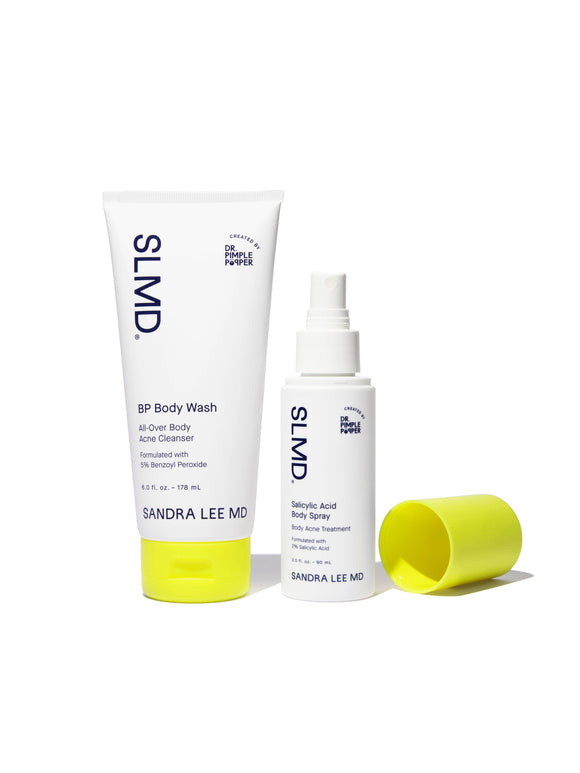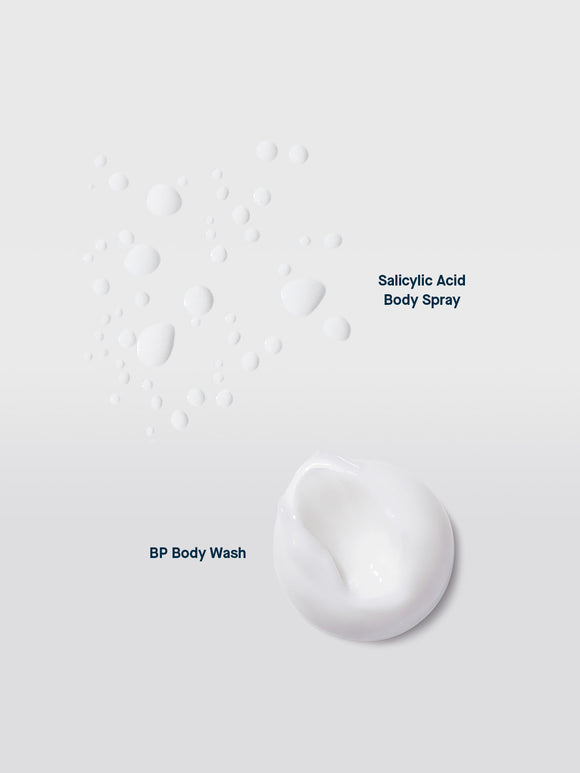
Can the Sun Help Clear Acne? What Dermatologists Want You to Know
Dr. Pimple Popper sheds light on one of the most misunderstood skincare rumors.
Published:
3 minute read
Some people notice their acne improves in the summer. Others find that breakouts get worse. So what’s the truth: can sun exposure actually help clear up acne?
According to board-certified dermatologist Sandra Lee, MD (aka Dr. Pimple Popper), the relationship between sunlight and breakouts is more complicated than it seems. In this guide, we’re breaking down the science behind how UV exposure affects acne-prone skin — and what dermatologists recommend for healthy, balanced skin all year long.
Article Quick Links
Does tanning help acne?
We’ve debunked this myth before — but there’s a reason it exists. Sunlight contains a spectrum of radiation (including visible light, UVA, and UVB) that can temporarily change the appearance of acne by:
- Darkening the skin: Tanning or sunburn can make acne seem less noticeable by camouflaging redness and marks.
- Suppressing the immune response: UV rays may temporarily reduce inflammation by weakening skin’s defenses — not a long-term solution.
- Killing surface bacteria: UV and blue light have antibacterial effects, but studies show they’re less effective than ingredients like benzoyl peroxide.
Bottom line: any improvement you see is short-lived — and comes at the cost of UV damage. Though many dermatologists have been warning about sun exposure for decades, myths about tanning beds and “acne-clearing” rays persist.
Dr. Pimple Popper's Acne & Sun Smart Solutions
Can the sun make acne worse?
Yes — and many dermatologists say they see this firsthand. Research shows that UV exposure, particularly UVB radiation, can worsen acne by:
- Increasing oil production: Sebaceous glands may become more active after sun exposure.
- Triggering oxidation: UV rays can alter sebum composition, making it more comedogenic.
- Disrupting skin hydration: Dehydrated skin is more prone to breakouts and irritation.
- Weakening the barrier: UVB can damage the stratum corneum, making skin more vulnerable.
- Fueling inflammation: The body’s immune response to UV exposure can worsen acne symptoms.
- Altering DNA: Both UVA and UVB radiation can cause mutations that impair skin cell function — increasing the risk of long-term issues like premature aging and skin cancer.
Sun exposure also increases the risk of post-inflammatory hyperpigmentation (PIH), especially in deeper skin tones.
Dr. Pimple Popper tip: “If you have acne-prone skin, choose a non-comedogenic sunscreen — like my SLMD Daily Moisturizer with SPF 15 — to avoid clogging pores while protecting your skin.”
Why do some people think the sun clears acne?
There’s still a lot we don’t know about how sunlight affects skin. Some researchers believe that in moderate amounts, sun exposure might support skin health by boosting vitamin D production — which plays a role in immune regulation, antimicrobial activity, and healing.
The challenge? Balancing the potential benefits of vitamin D with the well-documented risks of photodamage and skin cancer. For most people, limited incidental sun exposure (like walking outside) is enough to generate adequate vitamin D — especially when sunscreen isn’t reapplied frequently.
Different Fitzpatrick skin types have different sun exposure needs — so if you’re unsure about your ideal sun strategy, talk to your dermatologist.
FAQ: Sun exposure and acne
Q: Does vitamin D from sun exposure help with acne?
A: Vitamin D supports healthy skin — and it is possible to get enough even while protecting yourself. If you have concerns, talk to your dermatologist about how to find the right strategy for you.
Q: What kind of sunscreen is best for acne-prone skin?
A: Choose a broad-spectrum sunscreen that’s labeled non-comedogenic — meaning it won’t clog pores. Lightweight, oil-free formulas like SLMD Daily Moisturizer with SPF 15 are ideal for breakout-prone skin.
Q: Can light therapy treat acne more safely than sun exposure?
A: Yes — blue and red light therapies are dermatologist-approved for treating acne. These controlled treatments target bacteria and inflammation without the harmful effects of UV radiation.
Q: Can I still enjoy time in the sun if I have acne?
A: Absolutely — just be smart about it. Wear a non-comedogenic sunscreen daily, avoid peak UV hours when possible, and reapply SPF if you’re out for extended periods. Protecting your skin helps keep breakouts (and long-term damage) in check.
Contributing sources:
Effects of UV irradiation on the sebaceous gland and sebum secretion in hamsters
Solar UV radiation reduces the barrier function of human skin
Ultraviolet Phototherapy and Photochemotherapy of Acne Vulgaris

Dr. Lee's Last Word
Some of my patients notice their acne seems to get better in the sun — but that doesn’t mean sunbathing is the answer. It’s always better to treat breakouts with proven ingredients, and protect your skin with sunscreen that won’t clog pores.



